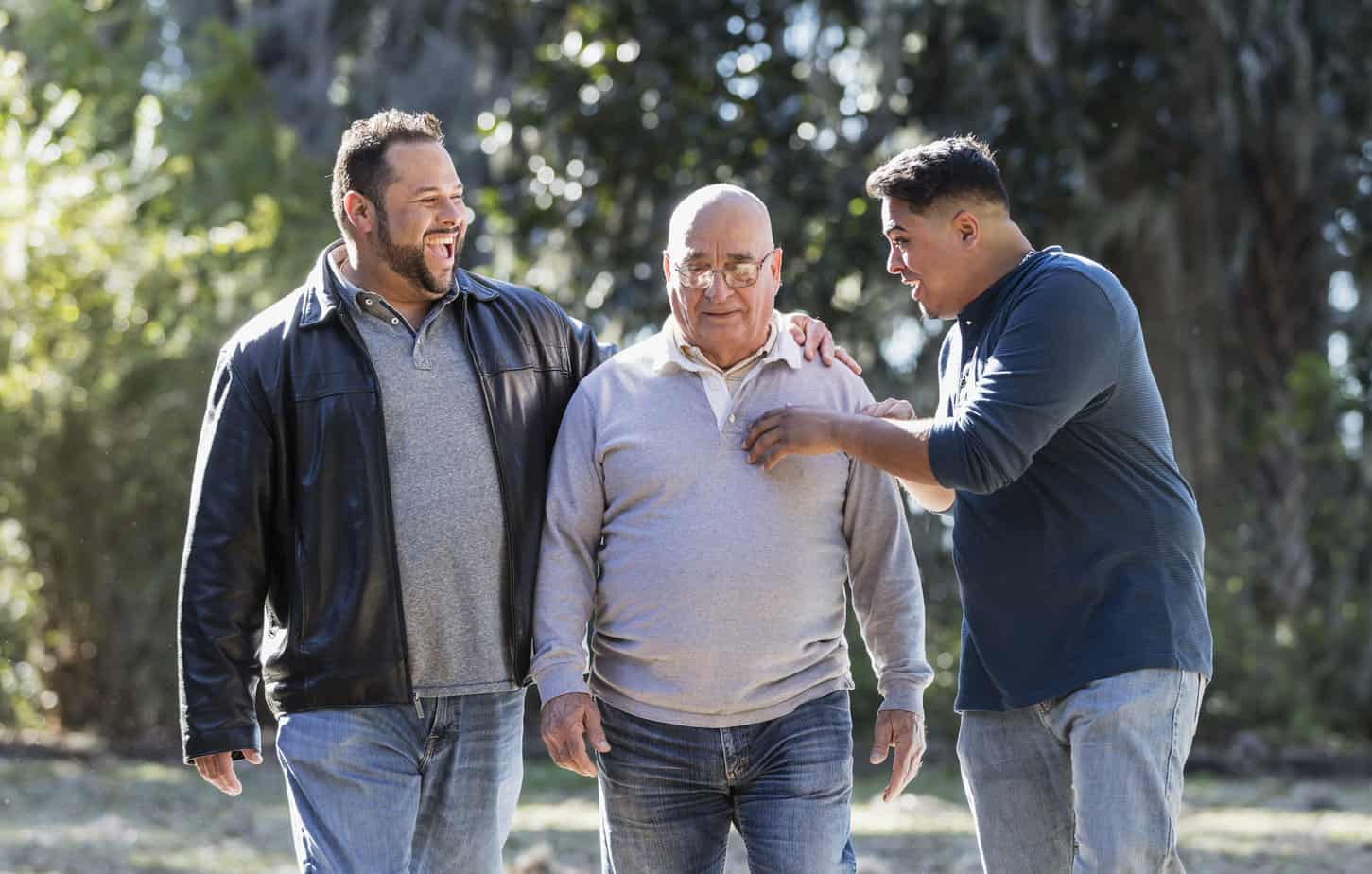Sober living homes sometimes referred to as “halfway houses” or “extended care programs,” are a popular living environment for those in early recovery looking to solidify their recovery skills and live in a structured community with other sober individuals. These sober living communities aim to bridge the gap between the end of residential treatment and long-term recovery. To find the best sober living home that supports your recovery goals, there are a few things you should consider.
Look Out for Sober Living Home Red Flags
First, let’s talk about things you should avoid when choosing a sober living home. Since these houses are not formally regulated by the government, it’s important to keep an eye out for disreputable facilities that participate in unethical practices and behaviors.
- Claims to be “free” or will pay you – Some sober living homes might say that clients can stay for free or offer the option to pay their way through the program. However, this is just a sneaky way for owners to collect your personal and insurance information and submit false insurance claims. Upon admission, all the fees and charges should be clearly laid out on the table.
- Poor living conditions – Unfortunately, it’s easy for some facilities to mislead potential clients. You might see a photo of a beautiful bedroom or common space online but when you arrive to move in, the living situation is completely different. Make sure to get a tour of the building before signing any official documents. Take careful notice of the surrounding neighborhood, cleanliness, kitchen and bathroom facilities, sleeping arrangements, and anything else that is important to you.
- Does not require abstinence or drug testing – This is a big red flag as one of the primary reasons for living in a sober community is that all the residents are in recovery. Routine drug testing holds everyone accountable and ensures complete honesty about sobriety. Ask about their drug testing process and medication policy. You deserve to live in a supportive and safe home free from anyone who may pose a threat to your recovery.
- Lacks clearly stated ethical standards – To ensure trust and safety among everyone in the house, administrators and staff members should follow a code of professional and ethical standards. These might include that the house is properly insured, or that staff needs to remain abstinent whenever on the premises. Another sign of credibility is if they are backed by well-known organizations like the National Alliance for Recovery Residences (NARR).
- No admission requirements – Reputable sober houses usually require residents to have completed an addiction treatment program prior to moving in. Some also ask that you actively participate in an outpatient program while you stay there. And others require that you regularly attend 12-step meetings or support groups. The facility should have a strict screening process in place to only admit people who are truly willing to remain sober.
Things to Consider in a Sober Living Home
Choosing the right place is one of the most important decisions you’ll need to make in early recovery. Now that we have the red flags out of the way, it’s time to look at the different amenities and components of each sober living home.
Location
The location of your sober living home is perhaps one of the most important aspects to consider. You need a safe, stress-free environment that’s conducive to your recovery. Start by asking yourself a few different questions:
- How close do you want to be to home?
- How close is it to your job, school, or treatment?
- Do you want to live in a city or a rural area?
- Is the neighborhood safe?
- If meals aren’t provided regularly, where is the nearest grocery store?
- Are recovery meetings in the home or within walking distance?
If your previous home environment was chaotic or stressful, that may have partly contributed to your addiction. So, it might be best to live far away from toxic people and other distractions that could trigger a relapse. Living in a rural environment, for example, surrounded by nature, might be the refreshing start you need to truly focus on recovery. Although relocation comes with its own set of challenges, it can also be inspiring and help you grow as a person.
Structure
Many people struggling with substance use disorder have acted on their own free will in the past. Living in a community with other sober individuals holds you accountable for your actions and behaviors. A sober living house should have set guidelines and expectations for everyone to follow. Some of these rules might be a curfew time, wake-up time, being respectful to all members of the house, or a rotating chore list. For example, if it was your turn to clean the bedroom and you forget, then you not only hurt yourself but the other people who are depending on you as well.
You will also develop a healthy and productive routine, something that is crucial in recovery. Most reputable homes have a rough framework of what your day will look like. You might be expected to participate in recovery programming, 12-step group meetings, and fun social activities with your peers. Having a consistent routine will fill up your spare time and help you practice important life skills needed to thrive in long-term recovery.
Staff Members
Another crucial aspect is to ask how involved the staff members are in daily activities. The more involved they are, it’s likely the more passionate they are about seeing their residents succeed. You may also want to ask if the staff have personal experience with recovery which can build trust among residents. Find out if the staff is on-site or off-site. If staff members are mostly off-site, ask them how residents are held accountable and what support services are available.
Amenities
Every sober house is different and offers a wide range of amenities. While researching, ask yourself, do you prefer a private bedroom or a bedroom shared with roommates? A private bedroom may be nice to do reflective thinking and you can also avoid running into potential stress with a roommate. On the other hand, living with another person may help form stronger bonds and encourage you to socialize more if it’s hard for you to make new friends.
Additionally, check out the kitchen and common areas and picture yourself using those spaces. Other amenities might include a fitness center, pool, laundry services, computers, outdoor recreational spaces, and more. If the outpatient facility is off-site, is transportation provided to and from your counseling or group therapy sessions? Don’t be afraid to ask questions. You should be fully aware of everything a sober living community has to offer so you can make an informed decision.
Length of Stay
Some sober living homes have minimum length of stay requirements for residents. For example, you might need to live at the facility for 6 months or more. Others have no requirements. It’s difficult to know exactly how long you’ll need to participate in an extended care program so try to find one that has flexibility. You and your therapist, coach, and/or sponsor can decide together when you are confident enough to leave the program and live on your own in recovery.
Work requirement
Occasionally, a sober living home will offer a work therapy program for its residents. Mountainside’s Extended Care requires its clients to participate in a work program a few days a week at the Mountainside Cafe. Other facilities may ask that you look for a job during your stay and will support you along the job-searching process. Working a part-time job in recovery can seem daunting, but it’s also a great opportunity for you to build your communication skills, practice money-saving techniques, learn about responsibility and time management, and more. Work therapy can help you slowly transition back to a real-world setting with the support of your peers and mental health professionals.
Sober living homes are an effective resource for those who have completed treatment and are ready to begin their lives in recovery. They provide a balance of supervision and independence that allows people to acclimate back to work, school, and everyday life. Reach out to us for help finding the best sober living home for you.
If you or a loved one is struggling with addiction, Mountainside can help.
Click here or call (888) 833-4676 to speak with one of our addiction treatment experts.

 By
By 







